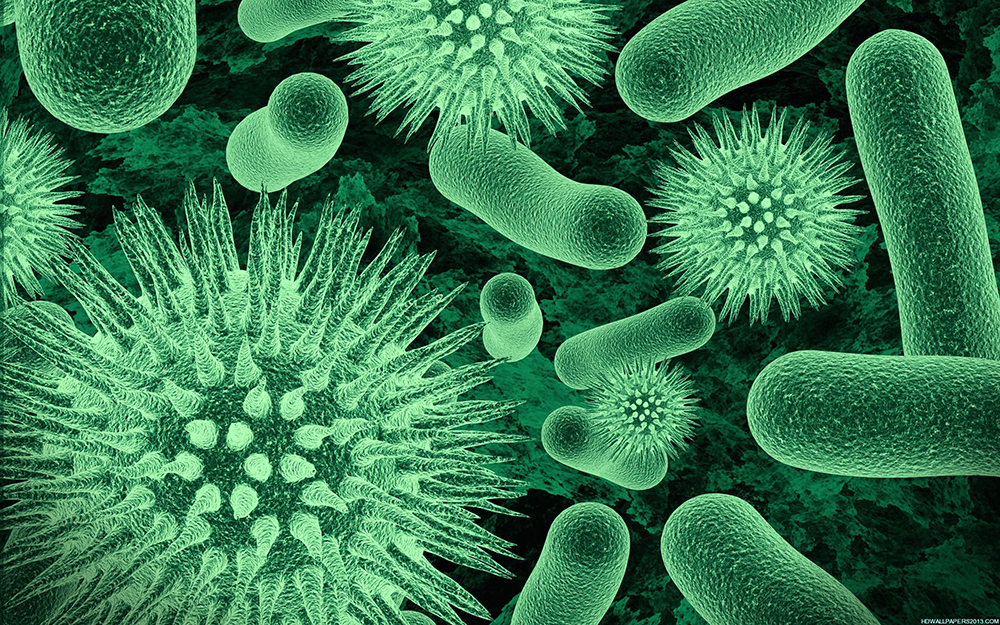
A growing body of evidence is showing that genes can be affected by lifestyle. The molecules surrounding our genes not only affect our physical traits but can also influence their expression. The environment we live in can affect our genes according to this new study. These results have wide-ranging implications. Here's a brief overview of how lifestyle affects our genes. What are the potential implications? Let's look at the potential consequences of these changes for our health.
Researchers have found that certain gene variations are associated with longer lives. These gene variations are involved in basic cellular functions, such as repair of DNA and maintenance of chromosome ends. They include genes that regulate the immune system and cardiovascular system as well as genes that control blood fat. The cardiovascular system plays an essential role in long-term health, including reducing the risk from heart disease and other diseases. Some researchers have also found that people who possess certain gene variants are less likely to develop certain cancers.

Some researchers have shown that lifestyle genetics are closely related to cardiovascular health. Evidence has also been found that genetic variants in CAD, and other conditions, can be affected by lifestyle changes. This relationship is vital for our health. To learn more about your family's history, click here. This is an important step towards improving your health. It's free! Remember: The more information you have, the better. You should consult a doctor if there are concerns about any particular disease.
Lifestyle and genetics have important combined effects. These factors may all impact your risk of developing type 2 diabetes, atrial fibrillation (stroke), coronary arterial disease, stroke and other conditions like atrial fibrillation. These factors may also increase your risk of developing heart disease. These findings should be a guide for individualized lifestyle changes. However, you have the option to decline the test if this information is not appealing to you. To achieve optimal health, it is crucial to take a comprehensive multifactorial approach.
However, these findings should not be taken as definitive proof of the causal relationship between genetics and lifestyle. Although genetics can play a significant role in some differences between men and woman, research has shown that lifestyle genes may also be an important factor. The results of these studies are helpful for developing better lifestyle-genetics-related prevention strategies. This will allow you to determine if your family is at risk of developing dementia. You should seek the advice of a doctor if your family is at risk.

A genetic test can also help you determine your risk factors for health. This test can provide a clear picture about your risk for certain conditions. The test will also show if you're a carrier of some gene variations. This means that your genes may be a factor in your overall health. Study by the authors revealed that lifestyle genetics is a great way for you to discover how your genes can affect your health. Healthy lifestyles can reduce your chance of developing dementia.
FAQ
Cardio Exercise: Good or Bad for Your Health?
Cardiovascular exercise can have many benefits. It increases blood circulation, strengthens the heart muscle, boosts stamina, aids in weight loss, and gives you more energy.
Cardiovascular exercise includes running, biking, hiking, swimming, tennis, basketball, soccer, volleyball, football, etc.
It is important to keep in mind that cardio exercises should not only be performed at a high level of intensity, but also at low levels. This could result in injury.
You should only perform the cardiovascular exercise if you are feeling well.
Never push yourself past your limits. This could lead to injury.
It is important to warm up before you begin any cardiovascular exercise. You can then gradually increase your intensity.
Always listen to your body. If you feel pain, stop doing cardio exercise immediately.
Also, after a cardiovascular workout, it's advisable to take a rest. This allows your muscles time to recover.
Cardiovascular exercise can help you lose weight.
This is the best way to lose weight and belly fat.
Is it possible to go to the gym every day of the week?
Yes, you can go to the gym seven days a week but not all at once. This means you need to choose a time when you feel rested and not too tired.
This will help you stay motivated and keep you energized for other activities.
Also, ensure you eat healthy during these times. This will help you not feel tired or slow at the gym.
Last but not least, ensure there are no other people competing for your time. Consider avoiding exercising on school night if you have small children. This will keep your attention from your workout.
How many times per week should I exercise
It all depends upon how much time you have and what type or exercise you prefer. An average guideline is to do moderate-intensity aerobic activity 3 to 5 days per semaine. It's important that you don't overdo it. For maximum results, consistent exercise is key to getting the most out of your workouts.
Which exercises are most effective for me?
It all depends on what type of fitness goals you have. Some people prefer endurance sports like swimming, cycling, or running. Others enjoy lifting weights or using resistance bands. There are many types and styles of exercise available today. Find the best option for you.
How does weightlifting help you lose fat more quickly?
Although weight lifting can help you lose fat more quickly, it is best to combine it with cardio exercises.
For the best results of weightlifting, do it after cardio exercises.
When done correctly, weightlifting increases your heart rate and oxygen consumption which helps you lose weight.
But if you do not combine it with cardio, you will not see any significant changes in your body composition.
Statistics
- Are You One of the 20% of Guys (mh.co.za)
- The PRS enabled risk stratification for overall prostate cancer and lethal disease with a four-fold difference between men in the highest and lowest quartiles (HR, 4.32; 95% confidence interval [CI], 3.16-5.89). (pubmed.ncbi.nlm.nih.gov)
- Candidates and applicants must pass all four tests at 70% (minimum level) to graduate from Basic Deputy U.S. Marshal (BDUSM) Training. (usmarshals.gov)
- Get free shipping and 25% off today. (healthline.com)
- According to the American Academy of Dermatology (AAD), men over 50 are at a heightened risk of developing it. (healthline.com)
External Links
How To
What nutrients does a man need daily?
Healthy growth and development of men requires healthy nutrition. Your body needs vitamins, minerals and nutrients as well as carbohydrates, proteins, fats, carbohydrate, fiber, and other essential components.
You also need specific nutrients for different times in the day. To give you an example, the body uses energy it receives from food to make hormones and antibodies. When you wake up, your body uses protein to repair damaged tissue and build muscles.
Your body will burn fat at night and store the extra energy as a form of glycogen. Your body still requires sufficient nutrients and calories even though it needs less calories. You can have a snack at night if you feel hungry.
When you work out, you need adequate levels of carbs and protein to fuel your muscles. If you train hard, you may experience muscle soreness after exercising.
To prevent this, you should eat carbs as well as protein within the first two hours after training. To provide energy, your body will begin to break down stored glycogen.
After your workouts, you should eat protein immediately. This will prevent muscle tissue from being damaged while you sleep.
Your body can produce lactic acid during intense physical activity. It builds up in your bloodstream, which can lead to fatigue. You can avoid this by eating carbohydrates-rich foods like fruits and veggies.
Carbohydrates offer your body the energy it needs for recovery from exercise.
A healthy diet should include lean meats such as fish, eggs and milk, cheese, yogurts, beans, seeds, nuts, and beans.
All of these foods contain high quality protein. Protein promotes muscle growth, and helps repair damaged tissues. Protein is also necessary for the production of sex hormones such as testosterone.
A healthy skin, nails and joints requires sufficient dietary fats. Healthy men need between 20% - 35% of the total caloric intake to be fat.
Fat helps protect your heart health and prevents cancer. It also keeps your brain functioning properly.
Vegetable oils such as sunflower oil and soybean oil can provide most of your fat needs.
These oils have high amounts of monounsaturated oil fatty acids, (MUFAs). MUFAs reduce cholesterol and inflammation. They protect your cells from damage by free radicals.
Saturated Fats (SFAs), which are mostly found in animal products like meat, butter, and dairy products, include LDL ("bad") cholesterol. SFAs increase LDL ("bad") cholesterol, and increase triglycerides. They also promote weight gain and belly fat.
Plant-based oils such as vegetable oil, nuts, seeds, or grains are rich in polyunsaturated fats (PUFAs). PUFAs are good for your heart health and help to reduce inflammation. They also reduce blood sugar, cholesterol, and other inflammatory factors.
Low HDL ("good") cholesterol can lead to erectile problems in men. High consumption of saturated fats increases bad cholesterol, which lowers the level of good cholesterol.
Men who eat large quantities of red meats or pork may develop prostate problems. High temperatures can cause nitrates to become nitrosamines. These compounds can cause cancer.
Many processed meats are high in nitrites, and other dangerous chemicals. These chemicals should be avoided.
The American Heart Association suggests that no more than two servings per week of red meat should be consumed. Instead, opt for poultry, fish, legumes and tofu as well as whole grains bread and cereals.